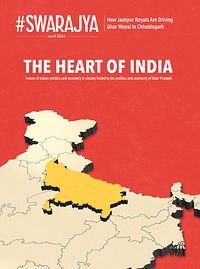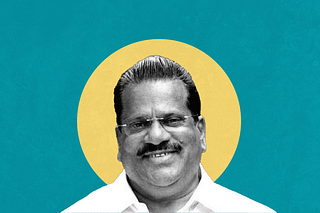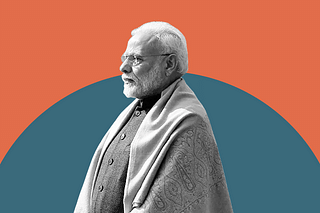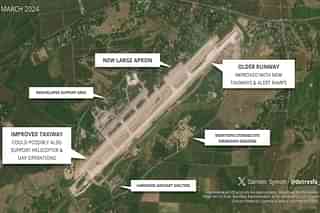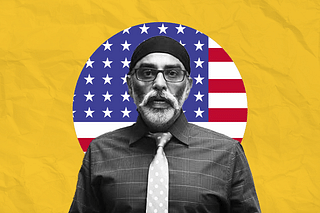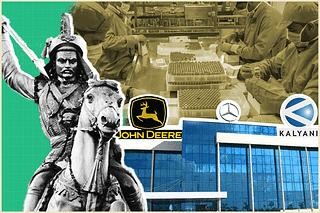Politics
Maharashtra Politics Is Caught In The ‘Sage-Soyre’ Trap, Neta Families Reluctant To Make Way For Political Greenhorns
Krishna Dange
Apr 17, 2024, 12:45 PM | Updated Apr 27, 2024, 11:58 PM IST
Save & read from anywhere!
Bookmark stories for easy access on any device or the Swarajya app.
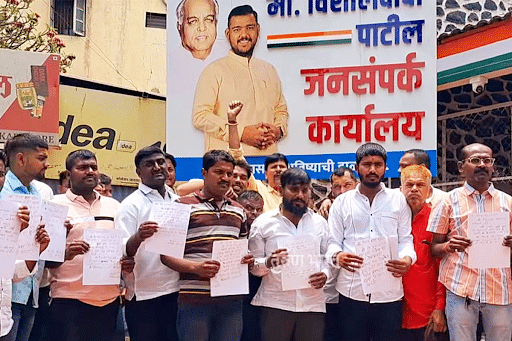
An image showing a group of young and middle-aged individuals standing with letters in their hands outside Congress leader Vishal Patil's office in Sangli has been the talk of the town since past few days.
As per reports, these letters were written by Patil’s supporters, supposedly using their own blood. They have urged him to file his candidature for the Sangli Lok Sabha seat as an independent candidate.
However, doing so implies going against the ‘coalition dharma’ as Shiv Sena (Uddhav Balasaheb Thackeray), Congress ally in the Maha Vikas Aghadi (MVA) has declared Chandrahar Patil as its candidate for the seat.
Nonetheless, Vishal, who had publicly expressed his displeasure against the state Congress leaders for not doing enough to keep the seat with the party, has gone ahead and filed his candidature as an independent as well as a Congress candidate.
While Shiv Sena UBT candidate Chandrahar Patil, a former ‘Maharashtra Kesari’ title-winning wrestler, is a novice to the domain of electoral politics, INC leader Vishal Patil is the grandson of the state’s former Chief Minister Vasantdada Patil. From 1980 till 2014, three generations of the Padmale village-based Patil family have represented Sangli in the Lok Sabha.
In the 2019 general elections, Vishal Patil had contested unsuccessfully from Sangli on the Congress ally Shetkari Sanghatna’s ticket. If he manages to win this time, Patil will be the sixth member from his family to represent Sangli in the Lok Sabha.
In the neighbouring Madha Lok Sabha constituency, senior BJP leader Dhairyasheel Mohite-Patil has joined the Nationalist Congress Party- Sharad Pawar (NCP-SP). This came after the saffron party decided to retain Ranjeetsinha Naik-Nimbalkar, its sitting Member of Parliament (MP) in Madha for a second time. NCP (SP) has promptly rewarded Mohite-Patil's defection by declaring him as its candidate for the Madha seat.
Both candidates here- Mahayuti’s Naik-Nimbalkar and MVA’s Mohite Patil hail from influential political families. The NCP-SP candidate Dhairyasheel Mohite-Patil is a third-generation dynast from his family, members of which are touted as the ‘king-makers’ of Madha. On the other hand, the BJP candidate Ranjeetsinha Naik-Nimbalkar is the son of former Shiv Sena leader and Satara MP Hindurao Naik-Nimbalkar.
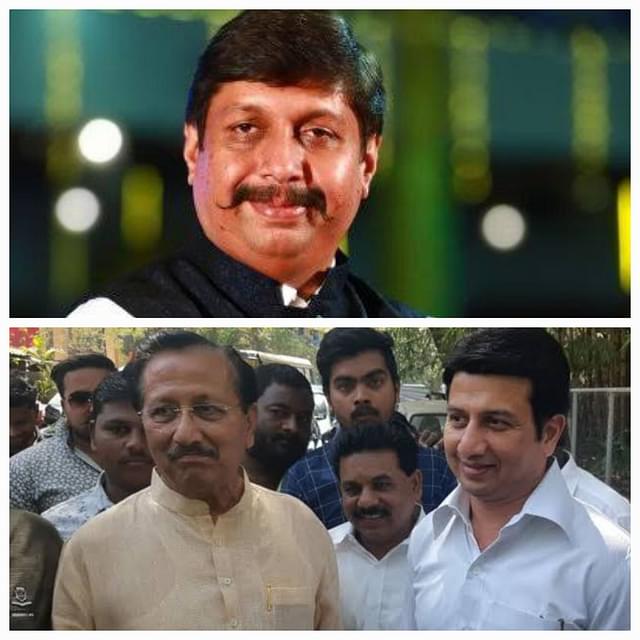
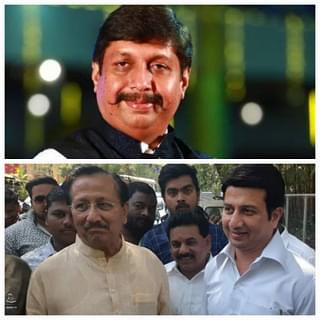
One of the major reasons behind the delay in finalising Lok Sabha candidate lists by the ruling BJP-led Mahayuti as well as the Maha Vikas Aghadi (MVA) — the alliance of the opposition parties in Maharashtra — is the all-pervasive dynasty politics in the state.
While all eyes from the mainstream media are on the big fight between two sisters-in-law in the Baramati Lok Sabha seat (i.e. NCP-SP’s sitting MP Supriya Sule versus Ajit Pawar led NCP’s Sunetra Pawar), Osmanabad Lok Sabha seat too will witness sparring family members on either sides.
Here, Mahayuti candidate Archana Patil- who has recently joined the Ajit Pawar led NCP is pitted against her brother-in-law and MVA's sitting Osmanabad MP Omraje Nimbalkar. Patil's husband is BJP's Tuljapur MLA Ranajagjitsinha Patil, who is in-turn the nephew of NCP's Baramati Candidate Sunetra Pawar.
This is apart from a sum total of 19 out of 43 candidates fielded by the ruling Mahayuti and 10 out of 46 candidates declared from the MVA's side until now, who had an edge over other contenders owing to their family roots in politics.
'Sage-Soyre' all around
One of the prominent words that has been in the vogue in the regional media since the onset of the Maratha agitation last year is 'sage-soyre,' which simply means those related by blood. While it was used by the Maratha community in the context of their demand for reservation, it perfectly epitomises the nature of dynastic hold over Maharashtra's polity.
As per the data compiled by the author from the results for each Lok Sabha constituency in Maharashtra and their constituting State Legislative Assembly seats, there are 75 families in the state that currently either have an MP (Member of Parliament, in Lok Sabha or Rajya Sabha) or an MLA (Member of Legislative Assembly) or an MLC (Member of Legislative Council) or individuals elected to all of the three positions amongst them.
This count is apart from those in the past who were elected to either of the positions mentioned above from the same family.
Over the years, these politically influential families have successfully managed to convert the Lok Sabha as well as the state assembly constituencies in their spheres of influence into what is eerily reminiscent of the feudal ‘jagirs,’ either in parts or in whole.
For instance, octogenarian leader Sharad Pawar’s family, irrespective of the split in NCP, has members in almost all top law-making houses except the state council.
While Pawar senior is currently a Rajya Sabha MP, his daughter Supriya Sule represents Baramati in Lok Sabha. On the other hand, Pawar senior’s nephew Ajit Pawar and grand-nephew Rohit Pawar are both MLAs at the present in the state assembly, representing Baramati and Karjat-Jamkhed seats respectively.
To understand the scale of dynastic influence over electoral politics in the state, sample this: the relatively prosperous Western Maharashtra region alone has 29 families who at present hold the reins of power from the level of a Lok Sabha seat to State Assembly and beyond.
These figures have been determined by identifying the first member from the family who was elected either as an MP (in Lok Sabha or Rajya Sabha), MLA, or MLC — followed by their progeny, spouse of their progeny, siblings of the first elected member, his or her spouse, their progeny, nephew, grandchildren of the first elected member as well as those of the sibling and so forth.
Apart from a lineage that can be traced back to the patriarch, marriages between members of politically influential families also have aided them in cementing their positions in their respective home districts.
For instance, state Congress Chief and Sangamner's eight-time MLA Balasaheb Thorat has relations with at least two other political families in his home district Ahmednagar.
Independent MLC Satyajeet Tambe-Patil, son of former Congress MLC Sudhir Tambe Patil and the now-deceased Congress MLA Rajeev Rajale from Shevgaon Pathardi- both are Congress leader Thorat’s nephews. After Rajale’s death, it is his wife Monica Rajale, a BJP MLA, who now represents the Shevgaon-Pathardi seat.
Likewise, Akola East BJP MLA Randheer Savarkar is the nephew of Akola BJP MP Sanjay Dhotre. Kolhapur South Congress MLA Ruturaj Patil is the nephew of Congress MLC Satej Patil.
Additionally, Rahuri NCP-SP MLA Prajakta Tanpure is the nephew of Islampur NCP-SP MLA Jayant Patil. Both Tanpure and Patil were cabinet ministers in the previous MVA government.
Along with such father-son, husband-wife, uncle-nephew bonds, a dominant caste background too seems to have helped political families. As seen in some cases in the past as well as in the present, caste organisations come in handy towards pressurising a political party's top leadership to ensure candidature is awarded to a dominant political family's scion.
As per the figures compiled using the methodology mentioned above, out of the 75 political families that either have an MP, an MLA or an MLC amidst them at present and have had other family members serving on similar positions in the past, 48 families belong to the numerically and socio-politically dominant Kunbi-Maratha caste.
As perused from the data gathered, while the Maratha political family lineages continue to extend way up to grandson or grandnephew, political dynasties from the Scheduled Tribes (ST), Scheduled Castes (SC) and Other Backward Classes (OBC) barely go beyond the second generation.
Category-wise, out of these politically active families, eleven belong to the OBC category, four belong to the SC category and six belong to the ST category. Among the unreserved, only two political families belong to the Brahmin caste while three families have Rajput roots. Apart from this, only one politically active family hails from the Marwadi community.
How did dynasties become indispensable to political parties?
According to political observers and academicians, unlike smaller states like Kerala or West Bengal, the level of active political participation of the masses in Maharashtra is relatively low.
Moreover, according to them most state units of the mainstream political parties in Maharashtra do not have a cadre base which is firmly committed to a party ideology, rather it is the dynasts and local heavy-weights with whom they choose to remain loyal.
"Families that had been traditionally dominant in their respective villages or blocks, took the lead in the freedom struggle. Post-independence, the same families started bagging candidature and plum ministerial positions from the then-dominant Congress.
When the BJP dislodged INC from power in the centre as well as state in 2014, a large chunk of them joined the BJP. When BJP’s influence wanes, they will most likely go back to Congress or NCP. We can already see this happening through examples like members from the Mohite-Patil family of Madha returning back to the NCP-SP fold,” Prof Mrudula Dewasthale, former faculty of Political Science at the Mumbai-based Kelkar-Vaze College, said.
Besides their traditional dominance, political families, especially those in the Western Maharashtra and Marathwada region, have firmly entrenched themselves in their constituencies through their involvement in establishing and managing cooperatives.
As per the data compiled by the author, 20 out of 29 politically active families in Western Maharashtra who either have an MP or a legislator amidst them at the present and had members from the same family becoming one in the past, have at least one co-operative sugar factory or a co-operative milk union in their control.
In the case of the neighbouring Marathwada region, of the 13 politically active families, at least 9 families have control over the sugar co-operatives.
Since formal sector employment and industrialisation in Maharashtra is limited to only certain urban clusters in Konkan, Western Maharashtra and Eastern Vidarbha, the co-operative sugar factories and co-operative dairy unions play an important role in the local economy and alternately local politics.
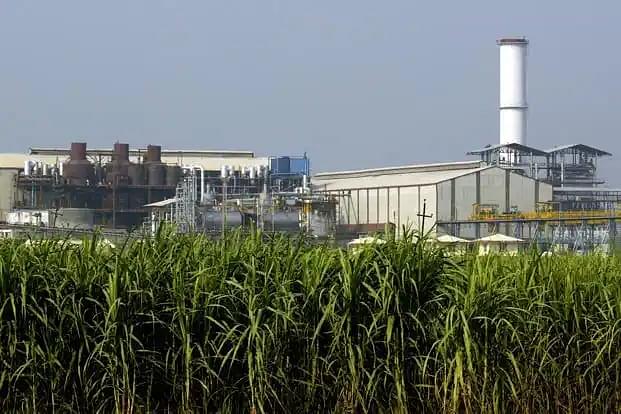
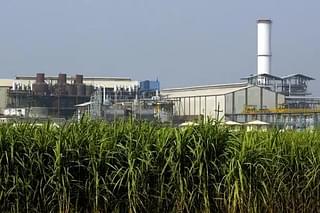
When conceptualised first in the 1940s by the noted economist Dr Dhananjayrao Gadgil, the co-operative sugar factories in particular were meant to be run by farmers who hold shares of the same.
In order to provide them a greater say in the operations of the factories, cooperatives were expected to hold elections regularly. Although elections have been held until now as per the bye-laws, it is mostly the families which took the lead to form such co-operative factories that came to dominate the co-operative movement.
According to Ashutosh Patki, a Mumbai-based journalist, who has worked on the correlation between the sugar co-operatives and politics in Maharashtra, a large number of farmers across the state rely on sugarcane farming as it is a guaranteed source of surplus income. Moreover, he points out that unlike other cash crops, it has a ready market buyer in the form of co-operatives as well as private sugar mills.
This is where political families like the Mohite-Patils from Madha Lok Sabha constituency who control the Shankarrao Mohite-Patil Co-Operative Sugar Factory and the Vikhe-Patils from the Ahmednagar Lok Sabha seat who control the Vitthalrao Vikhe Patil Co-Operative Sugar Factory come into the picture.
“Most of the sugar mills in the state, whether co-operative or private, are operated by members from the political families. Members from the same families are part of the governing boards of the district co-operative banks which disburse loans to the farmers as well as the sugar mill. Relatives of the same individuals are then part of either the ruling or opposition benches in the state as well as the Union government.
Thus, neither the political parties nor a large chunk of the rural electorate can avoid being a part of their network,” Patki said.
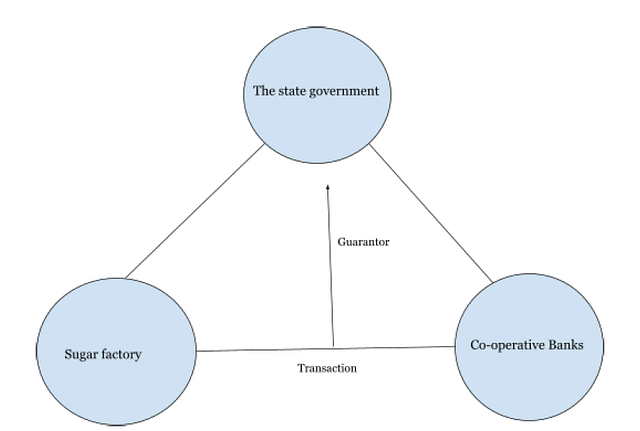
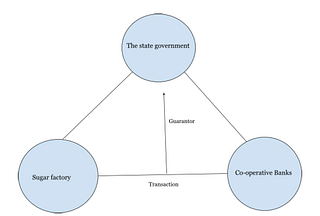
“Controlling co-operatives in fact is as good as controlling the electorate. For instance, former two-time Sangli MP Pratik Patil, a third-generation dynast from his family, controls the Vasantdada Sugar Co-Operative Factory. This factory has nearly 28,000 farmers as its members. Most of these members are loyalists and they in turn provide such families a safety cushion in the elections,” Patki added.
Dynasties With Deep Pockets- A Deadly Combination
The spending limit for each Lok Sabha candidates has been increased by the Election Commission of India (ECI) from Rs 70 lakh to Rs 95 lakh for the upcoming polls. However, it is a well known fact that in no case this amount is sufficient for any candidate who intends to leave no stone unturned to ensure his win.
In case of the several dynasts active in Maharashtra's politics, their control over the co-operatives ensures that there is no dearth of liquidity to further their political interests. In the recent past, several District Central Co-operative Banks (DCBs) and co-operative sugar factories alike in Maharashtra have collapsed owing to these institutions having defaulted on loans.
In a two part interview given to The Postman, a regional YouTube channel, Latur-based social activist Manikrao Jadhav has claimed that the co-operatives defaulting on loans was deliberate.
"The modus operandi of influential political families is this- first, either a co-operative sugar or a cotton spinning mill is built with the money pooled in by farmers on a land given on a subsidised rate by the state government.
Initiative for establishing the same is taken by a patriarch from the political family. Then huge amounts are borrowed from the co-operative banks over the years ostensibly for its operations. State government becomes guarantor here on behalf of the co-operatives.
Once the creditor DCB declares the co-operative as a defaulter, onus lies on the state government to repay the debt. The co-operative factory which is then put up for sale by the authorities for recovering the debt amount, is bought by the members from the same political family who once were its board members," Jadhav explained.
According to Jadhav, in this way, it's a win-win situation for the political families in control of the co-operatives either way.
"With little investment from their side towards raising the factory, they get the ownership of a ready-made production set-up built through borrowings sought in the name of the co-operative. The same Neta families then double up as businessmen after it becomes privately-run. Controlling such an undertaking that sees huge cash flows and diverting certain amounts from the same to fulfill their personal interests ultimately helps them stay put in politics," Jadhav added.
In parts like Vidarbha, Khandesh or Konkan where there are no co-operatives, most political dynasts are involved in operating private businesses run either in their name or in the name of their kith and kin. This creates a cycle of gaining and retaining political power through money, and then accumulating more wealth further by enjoying the perks of political power.
“It was a natural perception in the years after 1991 that economic liberalisation will have a spillover effect over the Indian polity as well as the society. While to what extent we have liberalised in terms of our societal outlook is debatable, we can see that the possibility for those with non-political background to enter electoral politics has shrunk further,” Prof Dewasthale observed.
“This is undesirable because dynastic politics of such proportion, combined with money-power, impedes the process of political socialisation of the electorate. The latter is necessary for us to become a functioning democracy in its real sense,” Prof Dewasthale added.
Note: This is a developing story since both coalitions are yet to finalise their candidates for the seats set to go for polls in the Phase 6 of the ongoing Lok Sabha elections.
Save & read from anywhere!
Bookmark stories for easy access on any device or the Swarajya app.
Staff Writer at Swarajya
Introducing ElectionsHQ + 50 Ground Reports Project
The 2024 elections might seem easy to guess, but there are some important questions that shouldn't be missed.
Do freebies still sway voters? Do people prioritise infrastructure when voting? How will Punjab vote?
The answers to these questions provide great insights into where we, as a country, are headed in the years to come.
Swarajya is starting a project with an aim to do 50 solid ground stories and a smart commentary service on WhatsApp, a one-of-a-kind. We'd love your support during this election season.
Click below to contribute.
